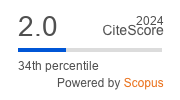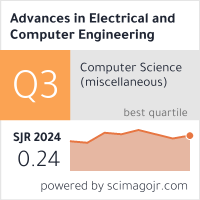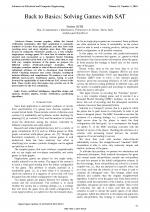| 3/2016 - 13 |
Back to Basics: Solving Games with SATQUER, S. |
| Extra paper information in |
| Click to see author's profile in |
| Download PDF |
Author keywords
artificial intelligence, algorithm design and analysis, boolean algebra, formal verification, partitioning algorithms
References keywords
satisfiability(7), verification(4), solving(4), intelligence(4), design(4), artificial(4), aided(4)
Blue keywords are present in both the references section and the paper title.
About this article
Date of Publication: 2016-08-31
Volume 16, Issue 3, Year 2016, On page(s): 91 - 98
ISSN: 1582-7445, e-ISSN: 1844-7600
Digital Object Identifier: 10.4316/AECE.2016.03013
Web of Science Accession Number: 000384750000013
SCOPUS ID: 84991056316
Abstract
Games became popular, within the formal verification community, after their application to automatic synthesis of circuits from specifications, and they have been receiving more and more attention since then. This paper focuses on coding the Sokoban puzzle, i.e., a very complex single-player strategy game. We show how its solution can be encoded and represented as a Bounded Model Checking problem, and then solved with a SAT solver. After that, to cope with very complex instances of the game, we propose two different ad-hoc divide-and-conquer strategies. Those strategies, somehow similar to state-of-the-art abstraction-and-refinement schemes, are able to decompose deep Bounded Model Checking instances into easier subtasks, trading-off between efficiency and completeness. We analyze a vast set of difficult hard-to-solve benchmark games, trying to push forward the applicability of state-of-the-art SAT solvers in the field. Those results show that games may provide one of the next frontier for the SAT community. |
| References | | | Cited By |
Web of Science® Times Cited: 0
View record in Web of Science® [View]
View Related Records® [View]
Updated today
SCOPUS® Times Cited: 0
View record in SCOPUS® [Free preview]
There are no citing papers in the CrossRef Cited-by Linking system.
Disclaimer: All information displayed above was retrieved by using remote connections to respective databases. For the best user experience, we update all data by using background processes, and use caches in order to reduce the load on the servers we retrieve the information from. As we have no control on the availability of the database servers and sometimes the Internet connectivity may be affected, we do not guarantee the information is correct or complete. For the most accurate data, please always consult the database sites directly. Some external links require authentication or an institutional subscription.
Web of Science® is a registered trademark of Clarivate Analytics, Scopus® is a registered trademark of Elsevier B.V., other product names, company names, brand names, trademarks and logos are the property of their respective owners.
Faculty of Electrical Engineering and Computer Science
Stefan cel Mare University of Suceava, Romania
All rights reserved: Advances in Electrical and Computer Engineering is a registered trademark of the Stefan cel Mare University of Suceava. No part of this publication may be reproduced, stored in a retrieval system, photocopied, recorded or archived, without the written permission from the Editor. When authors submit their papers for publication, they agree that the copyright for their article be transferred to the Faculty of Electrical Engineering and Computer Science, Stefan cel Mare University of Suceava, Romania, if and only if the articles are accepted for publication. The copyright covers the exclusive rights to reproduce and distribute the article, including reprints and translations.
Permission for other use: The copyright owner's consent does not extend to copying for general distribution, for promotion, for creating new works, or for resale. Specific written permission must be obtained from the Editor for such copying. Direct linking to files hosted on this website is strictly prohibited.
Disclaimer: Whilst every effort is made by the publishers and editorial board to see that no inaccurate or misleading data, opinions or statements appear in this journal, they wish to make it clear that all information and opinions formulated in the articles, as well as linguistic accuracy, are the sole responsibility of the author.



